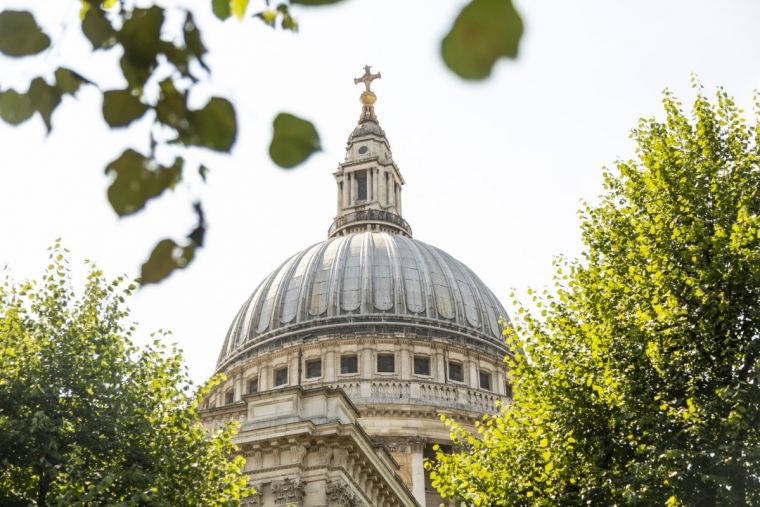Church of England reaffirms biblical teaching on sex and marriage—but for how much longer?

The Church of England's bishops have issued a pastoral statement responding to the introduction last month of opposite-sex civil partnerships in the UK.
It restates Church of England teaching on marriage and sexual relationships, explaining that:
'For Christians, marriage – that is the lifelong union between a man and a woman, contracted with the making of vows – remains the proper context for sexual activity... Sexual relationships outside heterosexual marriage are regarded as falling short of God's purposes for human beings. The introduction of same sex marriage... has not changed the church's teaching on marriage or same sex relationships.'
More pastorally, it adds: 'In its approach to civil partnerships the Church seeks to uphold that standard, to affirm the value of committed, sexually abstinent friendships and to minister sensitively and pastorally to those Christians who conscientiously decide to order their lives differently.'
Newspaper coverage and comments on social media have largely been some combination of hostile to this restatement of traditional biblical teaching and incredulous that the Church has not moved with the times.
The timely restatement of the Church's traditional Christian teaching has been broadly welcomed by biblically faithful believers in the Church of England and outside it.
Liberals have mostly been dismayed by its content and tone, saying it 'shows little evidence of the "radical new Christian inclusion" that we have been promised'.
Although the C of E is currently in the middle of a process of examining its teaching on sex and marriage, due to report in the autumn, its official position has not yet changed. Its pastoral guidance, on the other hand, is already very accommodating to those who do not live by biblical standards, stressing that no one should be denied baptism, communion or participation in church life if they 'conscientiously decide to order their lives differently'.
This gap between formal teaching and pastoral practice has resulted in a widening gulf between theory and reality, contributing to confusion among churchgoers and wider society about what the church believes in this area. This situation is not helped by the rarity of the Church's statements on the matter, which appear almost exclusively in response to major social developments, the last time being in 2014 upon the introduction of same-sex marriage.
Adding to the confusion is that in recent years a number of Church policies have become very open to modern values around sex and gender. These include the sly introduction in 2018 of guidance on celebrating gender transition, the publication in 2014 and 2017 of pro-LGBT schools' policy Valuing All God's Children, with which Stonewall were involved, and the recent release of its charter for 'faith-sensitive' and 'inclusive' Relationships, Sex and Health Education (RSHE), which seemed to embrace moral relativism.
These developments reflect the influence of a large movement for change in the Church of England, which flexed its muscles most visibly in 2017 when General Synod refused to 'take note' of a report from the bishops which, to their credit, reaffirmed the church's traditional teaching. The report was voted down by the liberal clergy, prompting the Archbishops to declare the advent of a 'new radical Christian inclusion' and initiate the Living in Love and Faith project to re-examine church teaching.
More recently in November the elevation of Bishop Stephen Cottrell, a champion of the liberal agenda whom many conservative clergy claim has told them they 'should follow their consciences and leave', to be the next Archbishop of York has caused concern and consternation among many clergy and churchgoers.
So while the new statement is certainly welcome, the future for the C of E remains uncertain. Many in the last few days have commented that with outdated morals like these no wonder church attendance is declining. But in fact it is churches which continue to believe in and teach the Bible that are doing much better than churches which try to move with the times.
Is this because God is blessing their faithfulness or because people are attracted to a faith that still has conviction – or both? Either way, let us hope and pray that, for the Church of England, the future begins to looks less gender fluid and more like the sound Christian teaching found, perhaps unexpectedly, in this pastoral statement.
Dr Will Jones is a Leamington-based writer, a mathematics graduate with a PhD in political philosophy and a diploma in biblical and theological studies. He blogs at www.faith-and-politics.com and is author of Evangelical Social Theology: Past and Present (Grove, 2017). He can be found on Twitter @faithnpolitic











